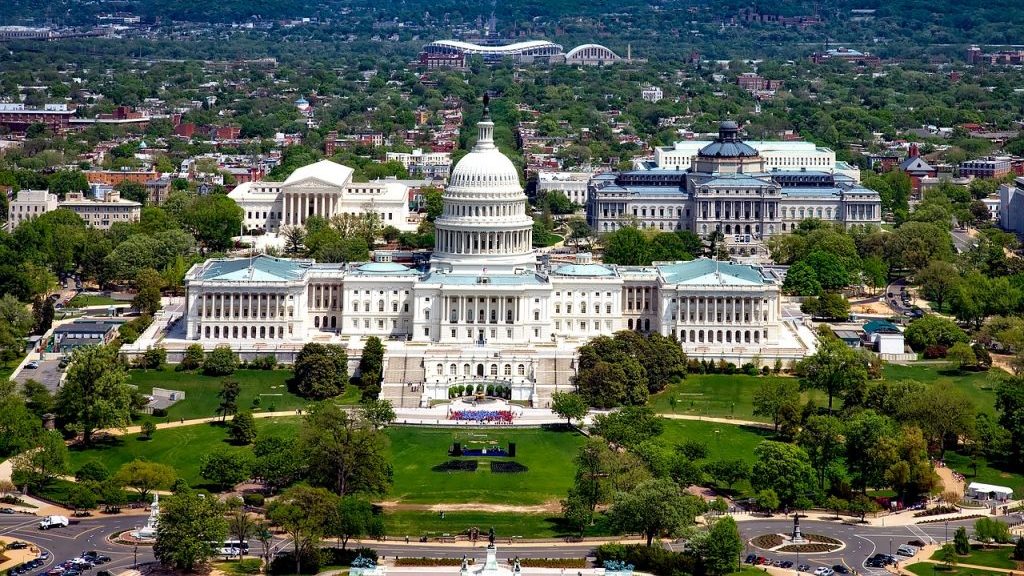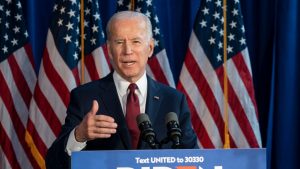There is no panic at the headquarters of North America’s Building Trades Unions (NABTU) despite the latest setback for U.S. President Joe Biden’s Build Back Better Act (BBBA).
Sen. Joe Manchin of West Virginia suddenly declared a halt to negotiations on the Senate bill Dec. 19 when he told Fox News he no longer supported the omnibus legislation.
White House press secretary Jen Psaki swiftly issued a statement condemning Manchin’s “sudden and inexplicable reversal in his position.”
Stated Psaki, “Senator Manchin’s comments this morning on FOX are at odds with his discussions this week with the president, with White House staff, and with his own public utterances.”
Manchin’s vote is critical for the legislation to reach the 50-vote threshold in the Senate. In the event of a 50-50 split, Vice-President Kamala Harris would cast the deciding vote.
“I’ve always said if I can’t go home and explain it to the people of West Virginia, I can’t vote for it. I cannot vote to continue with this piece of legislation. I just can’t. I’ve tried everything humanly possible,” Manchin said.
Later in the week, Manchin told a local West Virginia radio station there were other, unexplained reasons behind his decision. Manchin was reported to have returned to negotiate on the bill Dec. 21, while Senate Majority Leader Chuck Schumer said the BBBA would undergo a vote, possibly in revised form, in the new year.
The Associated General Contractors of America (AGC) has voiced opposition to the bill, saying it’s laden with expensive social programs and tips the scales on worker rights. Representatives of the Carpenters’ union and the NABTU said there’s a lot to like in the legislation.
“We are encouraged by recent reports that the so-called Build Back Better bill does not have support from a majority of senators and is thus unlikely to pass,” said Brian Turmail, the AGC’s vice-president for public affairs. “The measure included a number of dangerous and economically damaging provisions and would have represented a massive expansion of the federal government’s role in the U.S. economy.”
Turmail said he expected the Democrats will attempt to include parts of the bill in other legislation.
He previously stated the bill “has an enormous amount of new labour and environmental rules that really undermine the investments that are in the infrastructure bill,” referring to the Infrastructure Investment and Jobs Act signed into law by Biden in November. He also said measures affecting workers’ rights and collective bargaining represented “the largest rewrite of U.S. labour laws in over 60 years.”
Carpenters’ communications director Jen McKernan stated, “We support the full Build Back Better Act as well because our members aren’t just workers, they’re also mothers and fathers who have medical bills and child care bills. The Build Back Better Act lowers the costs of things families depend on and that means our members’ paycheques will stretch farther.”

Meanwhile, NABTU president Sean McGarvey suggested getting the BBBA passed was on par in priority to getting the John Lewis Voting Rights Act passed.
“Given the state of our country, the most important thing is to continue to negotiate the Build Back Better Bill, but we need to get the John Lewis Act done,” said McGarvey. “We need to get voting rights secured in this country so that the (Trump) coup isn’t finalized. That needs to happen.”
Addressing the current impasse over the bill, McGarvey said, “Negotiations are the usual course of business in the United States Congress.”
McGarvey praised BBBA measures creating jobs in the renewable energy sector,
increasing labour protections from “low-road contractors” and boosting access to pre-apprenticeship programs, but focused on the bill’s broad social programs to lift the middle class.
“It is the first opportunity, at least in my adult lifetime, to have an administration focus on the poor, the working class, the middle class, and how public policy can be used to support those groups and help them move the maximum amount of people to the middle class to contribute to job training,” said McGarvey. “There’s so many elements of the legislation that are once-in-a-lifetime opportunities.”
McGarvey said there is widespread support for an expansion of labour rights across the country, even among some employers, a movement that is escalating during the pandemic when many workers feel they sacrificed to keep the economy going.
“What’s happening in the United States right now is that regular people are now saying, ‘No, that’s not good enough. We’re not accepting that. And here’s our list of demands,’” he said, noting prolonged contract negotiations in the unionized sector.
“People who have been screwed for generations are saying, ‘No, we’re done with it.’”
The BBBA’s child tax credit, universal pre-kindergarten and child care measures are important to families and lighten the burden on working fathers and mothers who are candidates to access apprenticeship programs, said McGarvey.
Follow the author on Twitter @DonWall_DCN.











Recent Comments
comments for this post are closed